Training and experimental laboratory courses
Description
Important instrument to achieve preparedness of researchers to carrying complicated tasks in the field of modern innovative biomedicine and biotechnology, is training in the use of these methods to overcome the psychological barrier of seeming “profanity”. Knowledge and proficiency in the use of the novel methods ease up their incorporation into the research projects and allow achievement of new level of results unachievable with the old technologies. This will be addressed and resolved by a series of experimental (“wet”) trainings. Lead participants for WP2 are MTC/KI and DGB/LU. Trainings will be performed by 1-2 experts from CORE countries working with a group of 2 to 4 trainees depending on the complexity of the course. Complexity will also define the duration from one to up to four weeks as in “Wet” course 4a. This course trains in the assessment of the functionality of immune response by tumor challenge with monitoring of the tumor growth in the live mouse, and is the most longitudinal and complex. Reagent and material supplies at RSU and KIEPOR are restricted, deliveries occur with delays, there are limitations in possibility to order specific reagents (many unavailable), besides their costs exceeds respective in Sweden by up to 50%. Due to this, VACTRAIN foresees reagent and material support of the trainings to be given through allocating respective financial to the sending CORE institutions. In the end of each course, all trainees will be requested to write project/lab reports which will be graded, and training certificated will be released. Content of the trainings, as course materials and examination reports will undergo internal validation by Steering Board (yearly), and external validation by the Advisory Board of the Consortium prior to submitting final report.
Objectives
- By demonstration and active participation in training, ease up the incorporation of modern innovative biomedicine and biotechnology methods into the on-going research projects to allow achievement of the new level of results impossible to get with the old technologies.
- Share experience, and transfer critical know-how to increase the research capacities of Latvian (RSU) and Ukrainian (KIEPOR) researchers of all levels
- Prepare task force of the researchers at RSU and KIEPOR for fulfillment of hi-biotech tasks demanded by the cancer immunotherapy field.
Deliverables
- Detailed personified plan of lab trainings with lists of requested materials, reagents, eventually experimental animals
- Training #1 "Gene expression" and examination
- Training #2 "In vivo gene delivery"
- Training #3 "Dendrimers & small molecule applications"
- Training #4a "Screening immune responses; anti-cancer efficacy
- Training #4b "Multiparametric flow cytometry"
- Road map of second short-term trainings of selected methodologies for trainees invited to CORE centers; total 9 person/month.


